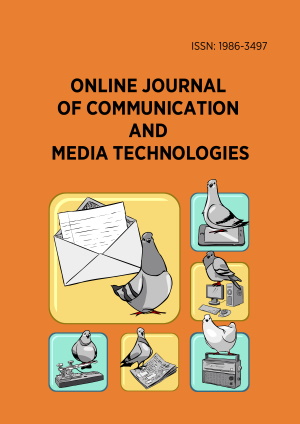Research Article
Reality Television, African Identities and the Big Brother Africa show: An Experiential Inquest
More Detail
1 School of Media and Communication, Pan- Atlantic University, NIGERIA* Corresponding Author
Online Journal of Communication and Media Technologies, 10(3), July 2020, e202017, https://doi.org/10.29333/ojcmt/8222
OPEN ACCESS 5264 Views 3504 Downloads
ABSTRACT
This study examined how Big Brother Africa has promoted the unique elements of African identities and multicultural images of Africa. This study was anchored on the cultivation theory to explain the nature and influence of Big Brother Africa as a reality TV show. The survey research method was adopted and the questionnaire served as an instrument of data collection. The results indicated that 90% of the respondents had watched BBA Hotshot, while more than 87 % of the respondents indicated that they had watched past editions of BBA. Also, the result indicated that more than 83% believed that BBA promoted African identities in the area of problem solving purposes. This study recommended that there was a need for more reality television shows that promote the indigenous languages and communal living among individuals.
CITATION (APA)
Okorie, N. (2020). Reality Television, African Identities and the Big Brother Africa show: An Experiential Inquest. Online Journal of Communication and Media Technologies, 10(3), e202017. https://doi.org/10.29333/ojcmt/8222
REFERENCES
- Andrejevic, M. (2004). Reality TV: The Work of Being Watched. Maryland: Rowman & Littlefield Publishers.
- Baumgardner, E. (2003, Febuary 24). Reality Game Shows Thrive. Daily Beacon, p. 1.
- Bell, E. H. (2002). Understanding African Philosphy. A Cross-cultural Approach to Classical and Contemporary Issues. New York and London: Routledge.
- Bignell, J. (2006). Big Brother: Reality TV in the Twenty-First Century. Basingstoke: Palgrave Macmillan. https://doi.org/10.1057/9780230508361_4
- Biressi, A. (2005). Reality TV: Realism and Revelation. Columbia University Press.
- Chikafa, C., & Mateveke, A. (2012). The ‘Africa’ in Big Brother Africa: ‘Reality’ TV and African Identity. Journal of Comunication and Media Research, 4(2), 43-57.
- Djinnit, D. (2018). What does it really mean to be pan-African in the 21st century? Retrieved from https://ecdpm.org/talking-points/what-does-really-mean-pan-african-21st-century/
- Igbinoba, A. (2014). Public perception of the cultural relevance of BBA II reality TV show: A study of covenant university staff and students. International journal of Social Science and Humanities Review, 2(2), 19-30.
- Kanu, I. A. (2013). African Identity and the Emergence of Globalisation. American International Journal of Contemporary Research, 2, 34-42.
- Lengnan, T. (2013). BBA: South African, Angelo, in shameful romance with Nigeria’s Beverly. Retrieved from http://peoplesdailyng.com/
- Mazrui, A. A. (1986). The Africans: A Triple Heritage. New York: Little Brown and Co.
- Middleton, K. N. (2010). Media and Identity in Africa. Indiana University Press.
- Morreale, J. (2005). Reality TV, Faking It, and the Transformation of Personal Identity. Comparative Literature and Culture, 1-8. https://doi.org/10.7771/1481-4374.1262
- Nwafor, A., & Onyekachi, E. (2015). Viewership of Big Brother Africa reality TV show and its influence on the moral conduct of Undergraduate students in Ebonyi State University, Nigeria. Global journal of Arts Humanities and Social Sciences, 3(5), 1-15.
- Oloka-Onyango, J. (n.d). Who’s watching `Big Brother’? Globalization and the protection of cultural rights in present-day Africa. Retrieved from http://www.muse.jhuedu
- Sarah, L. (2017). Adaptations of Reality Television Programmes: “The Big Brother Africa” Reality Show. Researchjournali’s Journal of Media Studies, 3(4), 1-8.
- Stober, J. (2006). Reality TV: Remaking Television Culture. Canadian Journal of Communication, 362. https://doi.org/10.7771/1481-4374.1262
- Uugwanga, V. (2013). The impact that reality television (TV) shows on the youths of Windhoek. Retrieved from http://digital.unam.na/handle/11070.1/5760
- Vinney, C. (2019). Cultivation theory. Retrieved from https://www.thoughtco.com/cultivation-theory-definition-4588455
- Wong, D. (2016). Why our African identity matters. Retrieved from https://www.huffpost.com/entry/why-our-african-identity-matters_b_8947996

 The articles published in this journal are licensed under the CC-BY Creative Commons Attribution International License.
The articles published in this journal are licensed under the CC-BY Creative Commons Attribution International License.